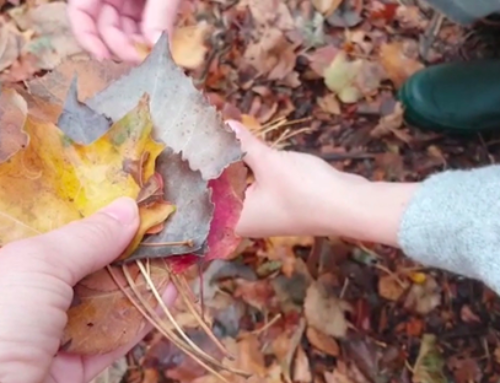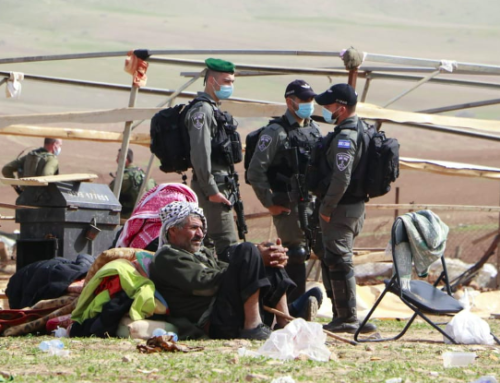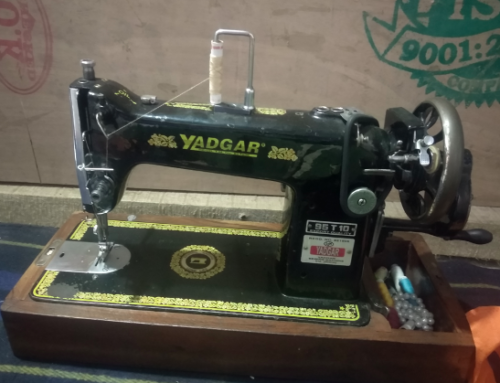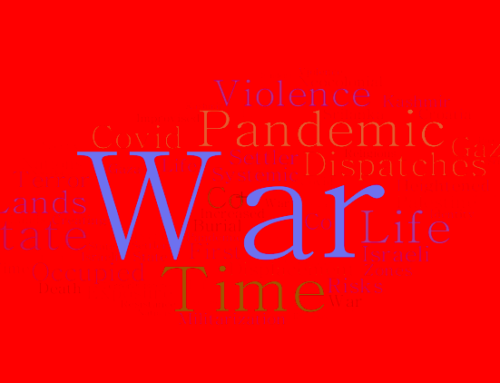The COVID-19 pandemic and the case of compulsory cremations was illustrative of how pandemic mediated scapegoating emerged in the context of post-war, post-2019 Sri Lanka. While a largely global phenomenon was being addressed and managed according to local proclivities, the case also revealed very local political specificities. The undermining of institutions, the considered gaslighting of the population, and the cultivation of thought-through malevolence, all elements of one family’s—the Rajapaksa’s brand of politics on the island, were operationalized under pandemic circumstances.1
Sri Lanka’s elites have long practiced the political minoritization of the country’s non- Sinhala communities. Burghers and Tamils were targeted by such processes in the immediate aftermath of independence in 1948. More recently it has been Muslims who are two million strong and nine percent of the total population. Anti-Muslim sentiment was cultivated as a political project after the end of the war in 2009, and periodic violence against Muslim communities became the norm with incidents in Aluthgama (2014), Kandy (2018) and Kuliyapitiya (2019) among the most significant. On Easter Sunday in 2019, several local Muslim individuals identifying with and emulating the Islamic State of Iraq and Syria (ISIS) carried out coordinated suicide bomb attacks on Churches and five-star hotels, killing 260 people. In the aftermath the calls of the anti-Muslim movement became government policy. And the Rajapaksas who returned to power soon after capitalised on what was already their favoured electioneering platform.2
When the pandemic hit Sri Lanka in early 2020, the state militarized its COVID response by framing it as a security issue and treated the infected as transgressors deserving punishment. This framing acted as the backdrop for Muslim scapegoating. The country’s media conglomerates as well as members of its intelligentsia were quick to collude with the state at that moment.
COVID-19, in its early days, became identified with Muslims’ recalcitrance. When the numbers were beginning to rise in March 2020, the media pointed to one businessman who continued meeting with professional contacts even though he had been ill after returning from abroad. He was Muslim. Mosques were falsely accused in the media of having held communal Friday prayers, when government directives against large gatherings were in place.3 A TV news program showed crowds arguing with Public Health Inspectors against lockdowns; it was in a Muslim village. Visibly identifiable Muslim people being bussed to quarantine centers by the military due to exposure to the virus were regularly shown on the News. The increase in infection numbers was disproportionately of Muslims, the media told the public. The story was of an entire two million-strong community’s inability to prioritize public health in an emergency, and by extension, to be rational responsible citizens.4
The first COVID-related death of a Muslim occurred on March 30, 2020. Bathing the dead, preparing them for burial, accompanying the dead in procession to the burial site and carrying out the communal funeral prayer are important elements of Muslim funeral rites in Sri Lanka. Cremation was counter to all accepted norms and considered a desecration of the body. For Muslims the inability to bury their dead was a violation of their responsibilities towards kin and community. Even though guidelines released on March 27 permitted burials of COVID dead, the government cremated the person.5 Immediately after, On March 31, 2020, the government issued new provisional guidelines requiring that all who died by COVID be cremated.6
After the first compulsory cremation of a COVID victim, the state pursued a policy of banning burials. Even then, the WHO guidelines and the prevailing information indicated that there was no evidence of burials having an impact on the spread of the virus; the state, however, was adamant on its stance. Most countries were permitting burials, but Sri Lanka, it was argued, was different due to climate and groundwater conditions. A discourse developed across Sri Lanka about the country’s specificity and the absolute necessity of not permitting burials.
A group of doctors, led by Professor Rezvi Sherrif, a well-respected senior nephrologist and a former member of the Sri Lanka Medical Association, wrote to the government asking for the appointment of a special committee, whose task would be to investigate the evolving science of the COVID virus management and its applicability in relation to local conditions. Such a committee, they argued, would be in keeping with prevailing Ministry of Health practices. This group of Muslim doctors later met with the Director General of Health Services and representatives of the Judicial Medical Officers (JMO). The meeting was heated; a JMO representative stated that they would never permit the compulsory cremation law to be overturned, noting that they would incite the entire country to riot in the streets if it were changed.7 Consultant Forensic Pathologist Dr. Channa Perera had even said they were concerned that terrorists might use infected dead bodies to manufacture bioweapons. Dr. Perera’s and his fellow JMOs’ post-Easter Sunday racism was never questioned, and was permitted to inform government policy for nearly a year. The government’s indifference to existing rules and procedures in public health emergencies permitted the cultivated hate against Muslims to become the basis for policy. Permissibility of undermining existing institutional mechanisms by creating new ones friendly to the regime, a hallmark of the Rajapaksas, was operationalized in this instance as well.
Activists mobilized in response and a letter with 200+ signatures were sent to the President on April 6, 2020. The letter urged the government not to add to the distress of bereaved families, pointing out that WHO guidelines in fact permitted burial. It urged the government to ensure that the dignity of the dead could be preserved and asked them to refrain from punishing a particular community at this difficult time. Despite such interventions, there was an upsurge in support for the government position and many commentators argued for “rationality” from Muslims in times of crisis. Muslim claims to religious and cultural specificity were dismissed as backward and their call for compassion as irrelevant. At that time, the government was praised internationally for its COVID management strategy, and many (including the World Bank) felt that the government campaign—regardless of its militarized and punitive practices—had legitimacy.
Indeed, there was a coming together of the members of the scientific community and those who considered themselves rational thinking Sri Lankans on the matter of compulsory cremation policy. Methika Withanage, a member of the Health Ministry’s panel of experts and a geologist at a prominent local university, argued in the press and later in the Supreme Court that the virus could spread through groundwater contamination. A social scientist published a piece on the Tablighi Jamaat’s contribution to super spreader events.8 No conversation was possible regarding dignity in death or compassion for the distress of the bereaved. This was a time when rationality alone was to reign supreme. Sri Lanka is a majority Buddhist country where cremation is widely practiced. Historically, however, burial too was common among the Christians, Muslims, and some Buddhists. The lack of effort made to accommodate different communities’ relationships to death was indicative of the long-practiced forms of minoritization in the country, as well as the loss of channels of exchange and mutual respect in death that existed at earlier times. The lack of empathy deployed by all sectors of the society in relation to the issue of compulsory cremations was an indication of the blinkered response to post-war and post-April 2019 distress that the Rajapaksa’s had encouraged and mobilized.
Muslims who died of COVID continued to be cremated, and their families were made to sign a release and pay for the cremation process. The fear of cremations impacted the health seeking behaviour of Muslims all over the country. Muslim families stayed away from seeking medical treatment, especially for the elderly for fear of catching COVID and facing cremation if they died. Families with means spent hundreds of thousands of rupees on bribes to officials to avoid a COVID-positive test result for their deceased loved ones. There were reports of botched tests among the poor and of those with no COVID also being cremated. For a period, some poor Muslim families refused to accept the bodies for cremation and refused to sign off and pay for burial. It was a time when the mortuaries were overflowing with the COVID dead of all communities. This time and this action mediated by activists fighting the state was one of great distress to the bereaved Muslim poor.
In December 2020, nine months after the first cremation of a Muslim, several developments led to the issue shifting decisively with the public. There was a steady increase in civil society activism around the issue and popular opinion turned against the government position. The country’s Supreme Court, by a majority decision, refused to grant leave to proceed to the 11 applications filed by Muslim, Christian, and Catholic petitioners challenging the Sri Lankan government’s policy on mandatory cremations.9 The judiciary’s complicity in the government’s insistence on cremation was heavily criticised (Marsoof 2021). On December 9, Mohamed Sheikh, a forty-day-old infant was cremated without parental consent, and a protest campaign was begun in response to the health authorities’ lack of empathy. On December 14, it was reported that the government was considering shipping deceased Muslims to the Maldives. Again, activists reacted in anger at the government attempting to ship off its dead Muslim citizens to a Muslim country for burial (Tegal 2021). Also in December, in response to lobbying by local activists the Organization of Islamic Cooperation released a statement condemning the government position. On December 15, Professor Malik Peiris, a global expert on SARS-COVID and a scholar of Sri Lankan origin was quoted as saying that the virus was unlikely to spread through ground water, and that burial could be permitted. Peiris with his Sinhala name and the legitimacy of his foreign university credentials was considered an authoritative voice and therefore the pressure on the government continued to mount.
On December 24, 2020, the government responded to the developments with the Ministry of Health appointing another committee consisting of well-known microbiologists, virologists, and immunologists “for the expert opinion on safe disposal of human remains of COVID-19 infected people.” The committee report produced four days later (December 28) recommended that burial was possible under strict conditions. The government, however, did not change its stance, and the gaslighting continued. The initial committee, which was also composed of health experts and had recommended compulsory cremation, could not agree with the second set of experts. Government spokesperson Keheliya Rambukwella insisted that the decision to retain the policy of compulsory cremation was made by health experts and had nothing to do with the government. The media again reported that the possibility of Muslim terrorists using a cadaver to manufacture a biological weapon was the deciding factor guiding the disagreement among health experts.
It was two months later that the government reversed its decision on compulsory cremations. In March 2021, Sri Lanka was still under investigation by the United Nations Commission on Human Rights (UNCHR) for wartime human rights violations and was to be the subject of a new resolution. In February 2021, in hopes of persuading Pakistan (a Muslim-majority country) to vote in its favor at the UNHRC, the government permitted burial in the peripheral Eastern Province town of Oddamavadi, a Muslim town far off from Colombo. The location made it clear that despite the overturning of the compulsory cremation rule, little about the Muslims’ marginal status had changed. Muslim COVID dead could be buried only in a Muslim town.
It is now two years since the compulsory cremations were abolished. The situation on the ground in the country has shifted as the population finds itself deep in an economic crisis. The Rajapaksa family’s political fortunes are declining as a result of the massive popular uprising that took place in 2022, and substantial changes seem to be in the offing for the country. The case of these compulsory cremations, however, remains emblematic of how things were done, how populations managed, and how the country was steered according to a particular political playbook. It is indicative of an undermining of institutions, of systematically utilising the media to convey misinformation to the populace, of instrumentalising transparently sycophantic experts to endorse the government position, and of gaslighting the population on a regular basis.
The economic crisis and the popular uprising caused a decisive shift in the population’s political literacy and there has been a rejection of how things were done by the Rajapaksas. Therefore, today even in the midst of the crisis there seems to be some hope. Yet, in a context where austerity is being forced on the country, it is unclear if the rejection of the Rajapaksa project and all that it meant can in fact be utilised for a better future for the country. It is the Sri Lankan activist community’s responsibility to ensure that it is.
Notes
[1] For fuller accounts of the developments of the time from different perspectives, see Marsoof 2021, Moinudeen 2021, and Tegal 2021.
[2] The local government elections that the Rajapaksa party the SLPP won, was immediately followed by anti-Muslim attacks in the Kandy district (Haniffa 2021).
[3] The red mosque in Pettah was featured in the Derana News Program as being open for prayers, and a businessman from Atolugama, a Muslim village was accused of having attended prayers. The mosque was in fact not open on the day and activists protest compelled the Derana News Program to issue a retraction and an apology. But arguably the damage had already been done.
[4] Moinudeen (2021) has documented how the media provided false information on Muslim COVID infected, and also about the systematic way the residents of the town of Atolugama were manipulated for visual effect by the media with the collusion of the Military.
[5] The Ministry of Health Provisional Clinical Practice Guidelines on COVID-19 Suspected and Confirmed Patients, dated March 27, 2020 (no longer accessible).
[6] The Ministry of Health issued a circular in addition to the guidelines. By April 11, the new rules regarding compulsory cremation were further strengthened through the issuing of the Minister of Health and Indigenous Medical Services Regulation 61A under the Quarantine and Prevention of Diseases Ordinance of 1897 (Gazette Extraordinary No. 2170/8, April 11, 2020).
[7] Interview with one of the doctors in the delegation: November 18, 2020. This doctor told me that he was appalled at the way that the procedures laid out for the Ministry of Health to respond in these instances were completely overlooked.
[8] While the politics of this piece were sympathetic towards Muslims and critical of the government response, the choice to publish in the context indicated an under-appreciation of the impact on public opinion in a rabidly anti-Muslim public context.
[9] Grounds for the challenge: it violates the right to freedom of religion and belief of some faiths and that the said regulation, in fact, violates the law under which the regulation has been made as the law itself permits either burial or cremation.
Postcard/thumbnail photo by Majid Gheidarlou on Unsplash.
References
Haniffa, Farzana. ‘Fact-Finding Report on the Anti-Muslim Violence in the Kandy District – March 2018’. Colombo: Law and Society Trust, 2021. https://www.lstlanka.org/publication/fact-finding-report-on-the-anti-muslim-violence-in-the-kandy-district-march-2018/.
Marsoof, Althaf. 2021. “The Disposal of COVID-19 Dead Bodies: Impact of Sri Lanka’s Response on Fundamental Rights’. Journal of Human Rights Practice 13(3): 669–89. https://doi.org/10.1093/jhuman/huab030
Moinudeen, Sakina. 2021. “Ethno-Centric Pandemic Governance: The Muslim Community in Sri Lanka’s COVID Response.” In Is the Cure Worse than the Disease? Reflections on Covid Governance in Sri Lanka, edited by Pradeep Peiris. Colombo: Social Indicator, Centre for Policy Alternatives.
Tegal, Megara. 2021. “Sri Lanka’s Double Pandemic: State Sanctioned Forced Cremations During the COVID-19 Pandemic.” https://doi.org/10.13140/RG.2.2.25329.81763.
Cita As: Haniffa, Farzana. 2023. “Pandemic Malevolence: Sri Lanka’s compulsory cremation policy and its Muslim victims” In “Pandemic War-Time: Dispatches from Occupied Lands” edited by Ather Zia, American Ethnologist website, September 26 2023, [https://americanethnologist.org/news/pandemic-malevol…-farzana-haniffa/]




